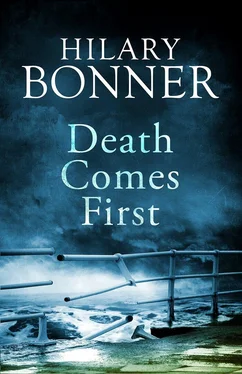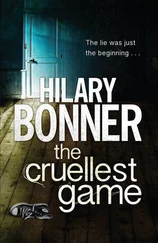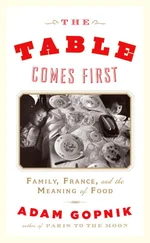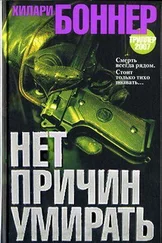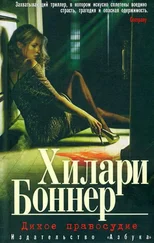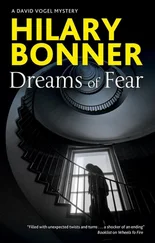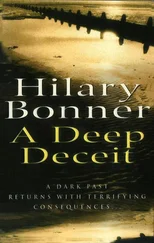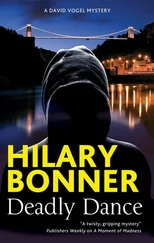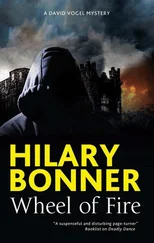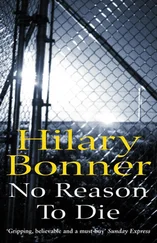‘All right,’ she said resignedly. She turned to her daughter: ‘I’m moving over, sweetheart. Your dad’s going to drive.’
Molly looked as afraid as Joyce felt.
‘Where am I going to sit?’ she asked in a small voice.
‘Out you get, Molly,’ instructed her father sharply. ‘You must ride in the back with... with...’ Charlie hesitated as if he could no longer bring himself to speak the name of the young woman to whom he had promised so much. ‘W-with Monika,’ he finished with an effort.
‘Oh no, oh, Mum, don’t let him make me do that,’ Molly began pleadingly, and she started to cry. ‘It’s too scary.’
Joyce made one last attempt to avoid what seemed to be becoming inevitable.
‘Why don’t you follow us in your car, Charlie? Then Molly wouldn’t have to move.’
She gestured towards the Honda.
Charlie shook his head. ‘The police are sure to be looking for it by now, and after all this rain I don’t even think it would make the track. Anyway, I’ve told you: we’re sticking together from now on.’
Joyce thought the police might be looking for her Range Rover by now too. She hoped so. But that didn’t seem to have occurred to Charlie.
Mollie was sobbing quietly. Much as Joyce felt for her daughter, she knew that none of them had any choice. She could only do what she believed was for the best.
‘Molly, do as your father says, please,’ said Joyce. ‘We need to get away from here. It will be all right, I promise.’
Molly began to cry more loudly. But she obediently got out of the front of the car and climbed into the back. She chose to sit at the end where Monika’s feet were, making herself small in the corner, so that Monika could remain lying along the seat.
‘Good girl,’ murmured Joyce encouragingly as she manoeuvred herself across the front of the Range Rover and into the passenger seat. ‘We’ll be home in no time, you’ll see.’
Charlie climbed in behind the wheel, produced the key and switched on the ignition.
Without another word he started the engine, reversed out of the ruined barn, along the rough track now swimming with mud, and on to the Landacre — Exford road, turning in the direction of the A38 and the M5.
A two hour journey to Tarrant Park — assuming that was where Charlie was planning to take his family — lay ahead. Joyce was dreading every long minute of it.
Meanwhile, Vogel and DCI Clarke had arrived at Southmead Hospital. Clarke was still talking as she pulled into the car park. Vogel had expected the DCI, who operated on a need-to-know basis, to restrict her briefing on Henry Tanner and his family firm to the bare minimum. What he hadn’t appreciated until now was just how little she herself knew.
Nobby Clarke had only a sketchy idea of what Tanner-Max’s defence brokerage actually involved. She didn’t know the details of the many countries they had dealt with over the years, or of the conflicts they had influenced and perhaps even indirectly instigated. She did not know the company history. She knew nothing of their initial dealings with Israel, including the heavy water transaction, which had so impressed Charlie Mildmay when Henry had revealed it to him all those years ago. She knew nothing of involvement in shipping chemical substances to be used in warfare contrary to international law. She knew of no dealings with criminal elements, as Charlie was at that moment alleging to Joyce. All she knew about Henry Tanner had been passed on to her by the government of the United Kingdom. By people who themselves may or may not have known all that they should about Tanner and Tanner-Max.
‘I’ve been told by the Foreign Office that Henry Tanner is a man of considerable importance to this country, and indeed to half the Western world,’ she informed Vogel.
And she went on to tell him, albeit only in the broadest of terms, without nearly as much detail, and without many of the salient points, much the same story as Charlie Mildmay’s.
‘Henry Tanner is an internationally known arms broker,’ Clarke related. ‘His front is his own legitimate import-and-export agency. He brokers arms deals with countries and organizations in the world where it is in the interest of the UK and her allies to place consignments of what are called defence materials. Some of these are manufactured in the UK, and it’s big business. There are 130-odd British arms manufacturers, who between them generate in excess of forty million quid a year for the exchequer. And I am sure you know that the West Country is where the majority of Britain’s arms-producing factories are located, and that is why the company was originally set up here. The majority of Tanner-Max’s undisclosed cargoes are, however, merely channelled from their countries of origin through our ports and air corridors, primarily here in Bristol where Tanner has a network of warehouses and loading bays at what remains of the docks and at the airport. It’s all highly political, obviously, and top secret. Tanner-Max is a family business and its cover is impeccable. Since the Second World War the company has been looking after British interests in parts of the world where we cannot be officially seen to have any kind of presence.’
Vogel was poleaxed. He had not expected anything like this, even when his hands had been tied behind his back by Reg Hemmings.
‘Think of it as a kind of money laundering,’ the DCI continued as she switched off the engine of the CID car. ‘Tanner makes sure vast quantities of arms and other defence products end up where our government wants them, without anybody knowing they came from us. And that, Vogel, is why we have to look after him. And why, if anything untoward happens to him or any of his family, it has to be investigated at a level above country plod.’
Clarke smiled then. A crooked challenging smile.
Vogel didn’t rise to the bait. He knew he was about as far removed from country plod as it was possible for a copper to be. And that DCI Nobby Clarke was more aware than most of that fact.
He was quiet as Clarke led the way to Henry Tanner’s private room. Vogel didn’t like this sort of thing. It got in the way of proper policing. He didn’t like the idea of a British citizen being given protection that might prevent them being brought to justice for their involvement in criminal activity. He didn’t like it one bit.
He looked at Henry Tanner with distaste, expecting him to try to take charge as on previous encounters. Tanner, however, was displaying none of his usual bravado. He seemed reasonably alert, but the bullet wound was obviously causing him pain. His wife looked worried sick.
When Clarke asked him if he now felt well enough to talk, Henry commanded his wife to leave the room so that he could speak to the police alone. Vogel was surprised any woman would tolerate such behaviour in this day and age.
To Henry’s obvious astonishment, it seemed Felicity had come round to Vogel’s way of thinking.
‘Those days are over, Henry,’ she said in a tone of voice that brooked no argument. ‘I’m staying. I want to know exactly what is going on.’
Henry sighed but did not demur.
Felicity sat close to him by the bed. Clarke sat down next to her on the only other chair in the room. Vogel stood at the foot of the bed. He would have chosen to do so in any case; from his chosen position he could look down at Henry and straight at him.
‘Right, Mr Tanner, this case is growing more serious by the minute,’ began Clarke. ‘Obviously I know the, uh, job you and your company do, and I know how sensitive that is. Under normal circumstances I would not ask you to jeopardize the... uh, confidentiality of your work. But something is wrong here, dangerously wrong. If you have any information whatsoever that could even remotely pertain to the events of the last couple of days, the time has come for you to confide in us. In particular, if you have any idea where, or with whom, your daughter and grandchildren may be, you should tell us. If you don’t... I hate to say this, but you could come to regret not doing so.’
Читать дальше
